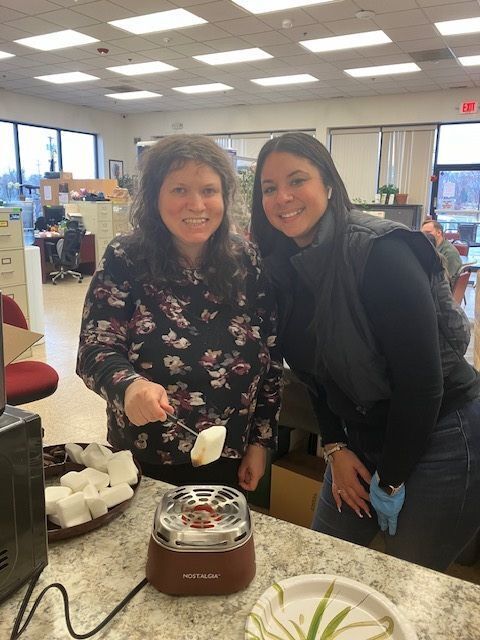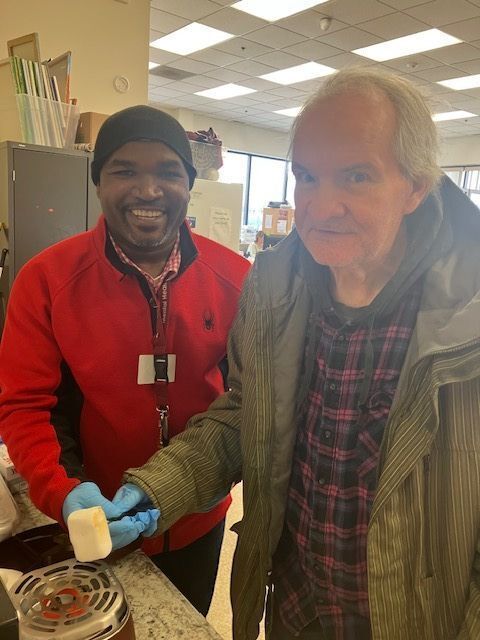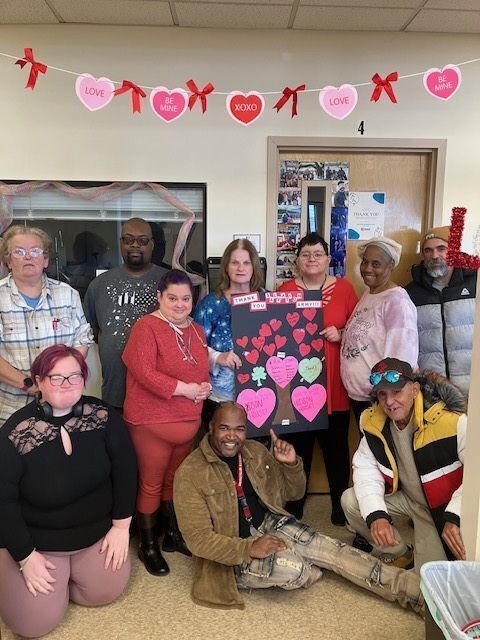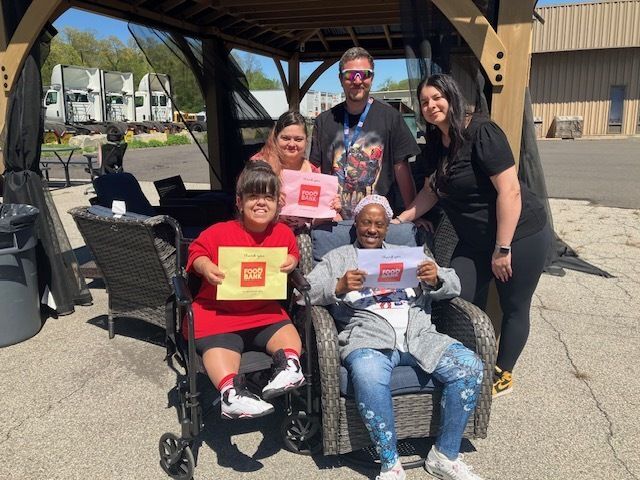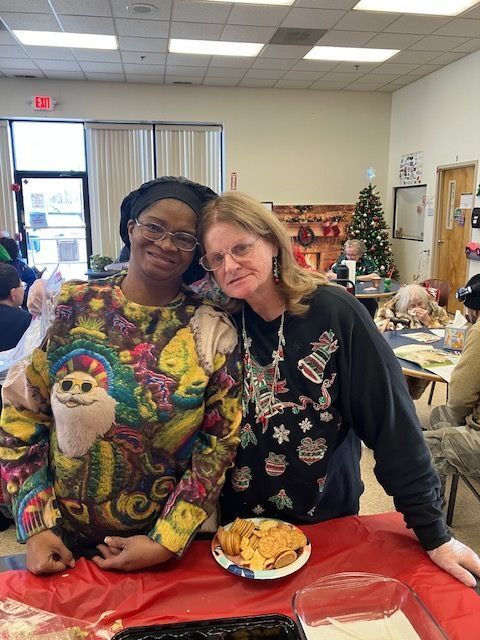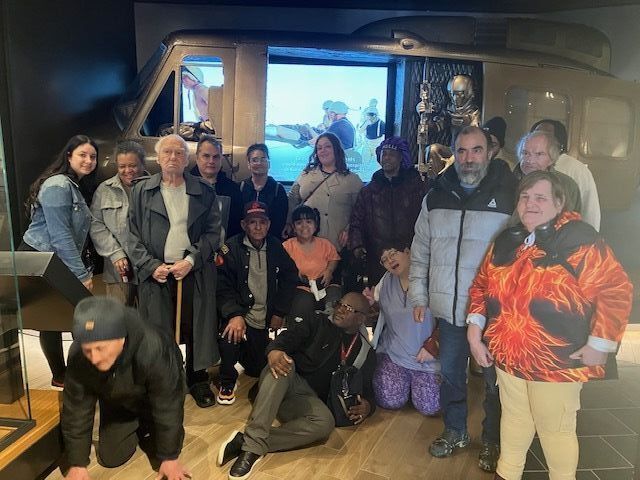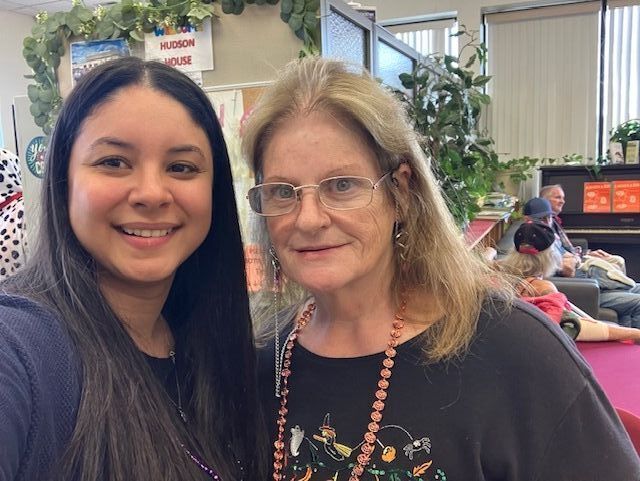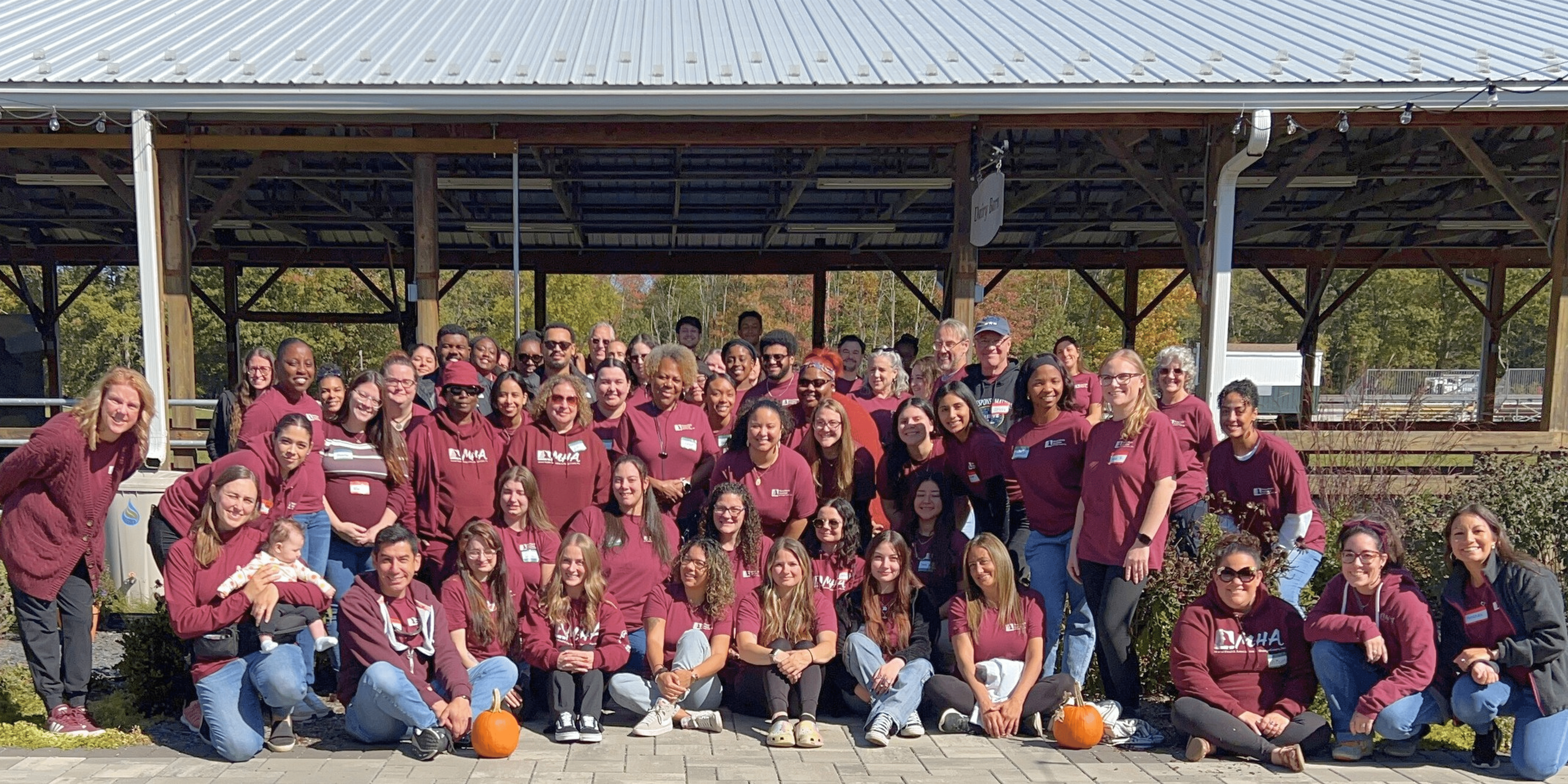Hudson House
A psycho-social club which offers skill building groups such as nutrition, wellness, and vocational, as well as travel activities and supports in the community and an opportunity for social interaction for adults with a psychiatric disability.
The goal of Hudson House is to assist members in attaining enriched foundations in work, education, relationships, and activities of daily living. Hudson House focuses on the strengths and talents of people recovering from mental illness, to assist each other in recovery.
Transportation to and from program is available to participants in the Newburgh/New Windsor Area.
Hudson House is comprised of the following:
Hudson House Program - Hudson House focuses on socialization, recreation and life skills training. Members of the program serve as an advisory board to groups and activities that are offered within the program. They also serve on agency wide committees. A variety of groups and activities are available which offer the opportunity to be involved in the community. In addition, members also enjoy a daily breakfast, lunch, and snacks. Transportation is provided twice a month to laundry facilities. Program transportation is also available to participants within the communities of Newburgh and New Windsor.
Support Education - The Supported Education Program consists of groups that provide information and skills attainment in areas that include but are not limited to wellness and recovery, vocation, nutrition, computer skills, stress, emotions, and safety. Members also have the opportunity to participate in creative arts, cooking, and music therapy. Peer support groups are offered and conducted weekly by members.
Travel Activity Club - Travel Activity Club provides recreational opportunities that promote positive integration into the community. The activities, which include but are not limited to movies, shopping, library, Meals on Wheels and community events, are selected and planned by Hudson House members. Travel Activity Club operates during regular program hours.
Hudson House Location and Hours
100 Leprechaun Lane, New Windsor NY 12553 - Monday – Friday 8:00am to 5:00pm
Forms and Resources
Hudson House Referral Form In order to be eligible for membership at Hudson House an individual must have a mental health diagnosis and have a psychosocial evaluation which has been completed within the past 5 years.
If you'd like to learn more about MHA's Hudson House contact Bianca Ghamlouch at bghamlouch@mhaorangeny.com
What is Social Practice?
Social Practice is a specialized form of therapy that uses the setting of an intentional community to assist people in their mental health recovery. It focuses on a community-based approach of helping individuals learn new skills, hone their talents, build dignity, develop a sense of belonging, and make progress towards their goals.
Recovery can be personal, that is — the process of regaining control over one’s life in a social environment or can be one of the common outcomes in clubhouse programs - the reduction in hospitalizations, independent housing, and gainful employment.
Intentional Communities are social environments designed to combat social isolation as persons living with mental illness are often faced with barriers to access community due to stigma and discrimination. The intentionality of the group offers a safe space and the opportunity to foster mutual support between mental health professionals and peers.
The Five Elements of Social Practice
People living with a history of mental illness or living with a serious mental illness may often experience challenges such as trust issues, social injustices and marginalization, lack of self-worth, low motivation, stigmatization, social isolation and alienation. The five elements of social practice are practical ways to understand and address these common experiences:
- Transformational/Social Design - Creating a social and/or physical environment where members participate in their own recovery. This approach allows people to identify their own needs and collaborate with others, thus addressing alienation and supporting recovery. Social design includes creating social structures as well as designing physical space. A basis of the clubhouse philosophy, the environment drives engagement, interaction and is a place of refuge.
- Engagement - Using the social environment to reach individuals with mental illness. The most critical aspect of engagement is the choice and control of an individual on how they choose to interact in their personal surroundings and interpersonal relationships. In a clubhouse, these methods may initially include making lunch, or sharing a common interest over coffee - and other techniques to help people make connections to others and the social environment. Ongoing engagement is crucial to achieve results such as a sense of connectedness, opportunities to build skills, and improved self-esteem.
- Relationship Development - Assisting members in developing a variety of social relationships and community connections. Mental illness often leaves many individuals without social connections or close friends, and difficulties in navigating or maintaining different types of relationships. Factors like fear or distrust along with a limited social skillset could lead to continued isolation. The focus on relationship development directly combats isolation and loneliness by providing the opportunity to cultivate social networks. These can include transformative interpersonal connections such as friends and family, collegial, and societal relationships.
- Integrated Feedback & Intervention - Ongoing observations of a person’s strengths, needs, and challenges within a social context that allow for the development of individualized interventions. This may involve a combination of selecting from evidence-based practices, the individual’s personal preferences, and the social practitioner’s mental health expertise. Continuous Assessment gives a holistic picture of the individual that is not dependent solely on disclosure, memory, or verbal articulation - all things that can be severely impaired by serious mental illness.
- Transitional Environments - Creating access to places and spaces in society where mental health is not a priority of the environment (e.g., a job at a local business). Transitional environments assist people with reintegration - safely shift from a therapeutic environment to natural settings (non-therapeutic). Using transitional environments allows people to succeed in places they may have struggled with in the past. They offer opportunities to take risks, practice implementing new behaviors or attitudes, and build confidence.
